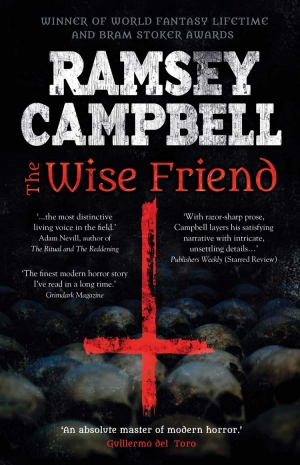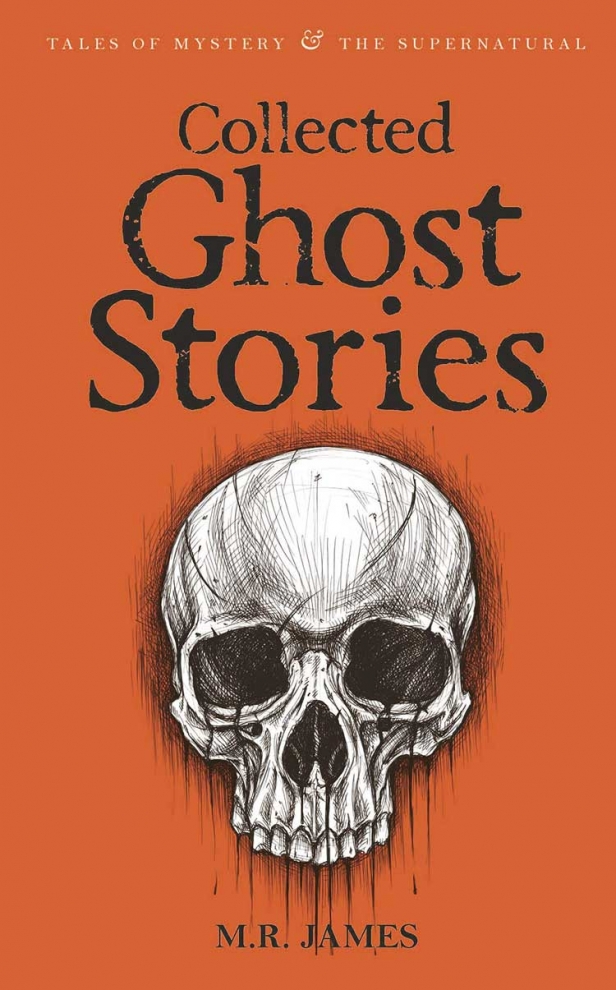Montague Rhodes James (1862–1936) is one of the absolute masters of the British tale of terror. He refined the tale of supernatural terror and, given his fondness for narrative play and overt references to generic tropes, can be cited as one of the field’s first modernists.
His ghost stories are a British institution. I’ve seen them praised for their cosiness, their atmosphere of academia and Edwardian male camaraderie, and their reputation for providing a comfortable shiver or two. I would say all this underrates and misrepresents the author’s contribution to the genre. Far from being cosy, his stories frequently present a reassuringly ordinary setting that is invaded by the malevolent and terrible. Sometimes everyday objects take on or harbour hideous life, and at times the juxtaposition of these elements borders on surrealism. He was among the first to make the tale of supernatural terror as frightening as possible, an effect he achieves by an inspired and precise selection of language.
Many of his most effective moments are inseparable from his style. No writer better demonstrates how, at its best, the ghost story or supernatural horror story (either term fits his work) achieves its effects through the eloquence and skill of its prose style – and, I think, no writer in the field has shown greater willingness to convey dread. He can convey more spectral terror in a single glancing phrase than most authors manage in a paragraph or a book. He is still the undisputed master of the phrase or sentence that shows just enough to suggest far worse. Often these moments are embedded within paragraphs, the better to take the reader unawares; the structure of the prose and its appearance on the page contribute to the power of his work.
His influence alone would ensure him a place in the pantheon. As with all influential writers his superficial traces can be found in the work of some bad ones – M P Dare was surely his most ludicrous literary offspring, and hardly one he would have been pleased to acknowledge – but such excellent and different contributors to the genre as L P Hartley, Fritz Leiber, Kingsley Amis, T E D Klein, Terry Lamsley and Adam Nevill learned from him. He even appears as a character (Dr Matthews) and tells a new story in Penelope Fitzgerald’s superb novel The Gate of Angels.

No writer of fiction aimed mainly at adults gave me more childhood nightmares and night fears. It quickly became apparent to the shrinking short-trousered Campbell that James habitually described just enough to suggest far worse, and I would be much less of a writer without him. In a tale called ‘The Guide’ I attempted to acknowledge my debt in full, but much else of mine would be poorer without his example. I think the figure that chases our hero uncannily fast across the soft sand in Thirteen Days By Sunset Beach could have scurried out of his imagination, and the scuttling subterranean denizen of the abandoned Greek monastery in that novel owes something to him too. The shape that sits up in a coffin, only to leave some of itself behind, in The Influence surely shows a trace of James, and so does the face that dangles from a ceiling in The Wise Friend.
Among James’s memorable horrors are the sheeted spectre of Oh, Whistle, And I’ll Come To You, My Lad that shows “a face of crumpled linen”, the thing that crawls out of the well in The Treasure of Abbot Thomas, the various dismaying manifestations of the powers of Count Magnus and his tentacled friend (surely an influence on Lovecraft), and the unwelcome visitor on all fours mistaken for a dog in The Diary Of Mr. Poynter. A Warning To The Curious offers perhaps the most sustained sense of relentless menace. You can find all these and many more dreadful delights in any collected edition of his ghost stories, a term that doesn’t do justice to the sense of the monstrously inhuman or no longer human in his tales. His spectres inhabited the dark of my youth, and they’re waiting to creep into yours. Good ghosts never die.
The Wise Friend by Ramsey Campbell is out now, published by Flame Tree Press. Read our review here.
